- Get $150 off of your Tax Depreciation Report per investment property from the quantity surveyor - DuoTax here.
- Discounted Sole-trade Business Tax Return:
Business Income and Expense Dec Form - (Fill in this form without our assistance to be considered for our discounted $220 to $330 fee (retail fee starts from $440) per yearly sole-trade non-GST registered business tax return - Ts&Cs apply. Excludes expenses review and bank reconciliation. This is lodgment-only tax return service that involves only minor reviews and data entries) - iqCron Accounting
- Discounted Sole-trade GST/BAS Retrun:
Business Activity Statement Form - (Fill in this form without our assistance to be considered for our discounted $132 to $220 fee (retail fee starts from $418) per quarter for your BAS/GST return - Ts&Cs apply. Excludes expenses review and bank reconciliation. This is lodgment-only BAS return service that involves only minor reviews and data entries.) - iqCron Accounting
- Are you a resident for tax purposes? - the ATO
- Simple tax calculator (tax on taxable income) - the ATO
- Income tax estimator - the ATO
- Home office expenses calculator - the ATO
- Self-education expenses calculator - the ATO
- Personal services income (PSI) decision tool - the ATO
- Capital gain tax (CGT) record keeping tool - the ATO
- CGT property exemption tool - the ATO
- Foreign income conversion calculator - the ATO
- Loss carry-back tax offset tool - the ATO
- Payroll tax, land tax, transfer duty and vehicle duty calculator - DoF RevenueWA
- New Employee Form (fill in and submit, if you are a new employee of one of our existing clients)
- TFN Declaration Form (fill it in, print out, sign and submit to your employer)
- Medicare Entitlement Statement (MES) Form (for taxpayer who were exempt from Medicare Levy)
- Consent and Declaration for Cancellation of Tax Registration (CDCTR) (fill out this CDCTR form to allow us to cancel the registration of your ABN, GST and/or ACN)
Arrange your written evidence for expenses claims:
It's that time of the year again - end of financial year (EOFY)! If you haven't been planning for your taxes from the start of the financial year, it's high time you start arranging your written evidences (i.e appropriate diary record, logbook for car, receipts, tax invoices and bank or credit card statements) to substantiate all of your work-related expenses claims and keep them for minimum 5 years in a legible state from the date of your tax return lodgement. The ATO has stringent substantiation requirements for your work-related expenses claims. Check here for more details.
Tips to combat possible review or audit areas by the ATO this year:
-
You should not rush to lodge your tax return before your information is tax-ready/STP-finalised by all sources/employers. The best time to lodge your tax rteurn is from late July.
- You need to have appropriate written evidence for all work related expenses specially for work-related home office expenses, car expenses, rental property expenses and so on.
-
For home office expenses claims under 70 cents/hour fixed rate method, you need a record of the hours you worked from home, kept at the time you worked those hours, for the entire income year (such as timesheets, roster or diary). Note: From 1 March 2023 the ATO will not accept estimates or a 4-week representative diary of hours worked from home.
-
Even if you made a loss, you must report any sale of your crypto-currencies, airdrop, staking interest income and so on correctly in your tax return.
- You should declare all income including cash and non-cash benefits from all sources.
- You need to make your EOFY shares/units/stocks/CFD trading and dividends statements ready to report them correctly in your tax return.
-
You need to make your EOFY managed fund tax statements ready to declare them correctly in your tax return.
Start the logbook for your work vehicle before 30 June:
If you are eligible to claim work-related car expenses, you'll be limited to the cents per kilometre method, which is capped at $4,400, if you don't have a car logbook.
If you haven't started your logbook yet, there is still time. As long as your logbook starts before 30 June 2025 it will be valid for the 2025 financial year.
The logbook must be a valid one as per the ATO's guidelines and it only has to be 12-weeks long. It can be valid for next five years as long as your overall pattern-of-usage for the tax-return year is within +/- 10% of your logbook percentage.
Must record the odometer reading on 30 June:
Even if you maintained your logbook for 12 weeks, you must also record your final odometer reading for the financial year on 30 June to claim your work-related car expenses.
This is specially very important for EV owners. EV owners won't be eligible to claim electricity charging at home using the 4.2 cpkm method if they don't have an odometer record at the 30th of June.
The easiest way to record this is to take a photograph of your work-vehicle's odometer reading on 30 June using your mobile device and email it to yourself with a subject line saying "EOFY Odometer reading - 2025".
Prepay to accelerate some expenses claims:
You can claim a tax deduction in this financial year for expenses which wholly or partly relate to next financial year. Consider pre-paying for expenses like:
- rent
- union fees
- advertising
- software
- licences
- accounting fees
- professional subscriptions, and;
- annual insurance premiums in advance by 30 June 2025 in order to accelerate your deductions for your 2025 tax return.
$20,000 instant asset write-off claim for FY 2026:
Temporary Full Expensing (TFE) has been replaced by Instant Asset Write-Off (IAWO) from financial year starting 1 July 2023.
Under IAWO measure, small businesses, with aggregated turnover of less than $10 million, will be able to immediately deduct the full cost of eligible assets costing less than $20,000 that are first used or installed ready for use between 1 July 2025 and 30 June 2026.
The $20,000 threshold will apply on a per asset basis, so small business entities (SBEs) can instantly write off multiple assets.
Assets valued at $20,000 or more (which cannot be immediately deducted) can continue to be placed into the small business simplified depreciation pool and depreciated at 15% in the first income year and 30% each income year after that.
For assets over this threshold, SBEs have the choice between small business depreciation and traditional diminishing value depreciation, each of which has pros and cons based on SBE-specific particular circumstances.
Claiming a new capital assets on your tax return can be complex. There are tricky timing rules, caps on the maximum amount and various adjustments must need to be considered and accounted for. It also gets complicated as much as tax is concered when your IAWO deduction creates an overall business loss.
If your small business needs to buy any expensive asset soon (i.e a business car), this would be a good idea to buy them and get them ready for use before 30 June 2026 for this asset to be fully tax deductible under IAWO measure in your 2026 tax return.
Please note, this measure (IAWO under $20,000) is most likely ending at its current level on 30 June 2026 and will revert to $1,000 from 1 July 2026. However, there are unofficial talks and promises on the news from political parties for an extension of this measure or even increase the level to $30,000 for future years.
Take advantage of small business energy incentive (applies to FY2024):
The energy incentive applies to eligible expenditure on assets between 1 July 2023 and 30 June 2024 ('the bonus period'). It also applies to eligible expenditure on improvements to existing assets incurred during the bonus period.
Eligible SBE can claim an additional 20% tax deduction on spending that supports electrification and more efficient use of energy.
The energy incentive helps small businesses make investments like:
- electrifying their heating and cooling systems
- upgrading to more efficient fridges and induction cooktops
- installing batteries and heat pumps.
Up to $100,000 of total expenditure is eligible for the energy incentive, with the maximum bonus tax deduction being $20,000 per business.
Tax deductible personal super contributions:
You may be able to claim a tax deduction for personal super contributions you make to a complying super fund or retirement savings account (RSA).
In order to claim a deduction, you must first give your super fund or RSA provider a valid notice of intent and receive an acknowledgment form from your fund or RSA provider. Also, your personal contribution amount must be received by 30 June by your super fund provider. This means you need to make this payment to your super fund at least couple of weeks before 30 June.
Before claiming a deduction for personal super contributions, you should consider the impacts on your super.
Also, you need to make sure the total amount of your contributions for the year (including the contributions made on your behalf by your employer) is within the concessional contributions cap. The concessional contributions cap is the maximum amount of before-tax contributions you can contribute to your super each year without contributions being subject to extra tax.
- From 1 July 2024, the concessional contributions cap is $30,000.
- From 1 July 2021 to 30 June 2024, the concessional contributions cap for each year was $27,500.
- From 1 July 2017 to 30 June 2021, the concessional contribution cap for each year was $25,000.
The cap increases in increments of $2,500 in line with the statistical measure of average weekly ordinary time earnings (AWOTE).
If you have unused cap amounts from previous years, you may be able to carry them forward to increase your contribution caps in later years.
Example: effects of claiming a deduction for a personal super contribution
During 2019–20 Christie is employed as a hairdresser and earns $35,000 in assessable income.
Christie contributes $5,000 to her super fund as a personal contribution. If she wanted to claim an income tax deduction for the entire super contribution, she would need to give her fund a notice of intent and get an acknowledgment.
Having done this, Christie could claim a tax deduction of $5,000, reducing her taxable income to $30,000. However, her fund would pay 15% tax on the $5,000, so only $4,250 would be credited to Christie's super fund account. Additionally, Christie would be eligible for the low income superannuation tax offset, so the government would refund her offset into her super account. However, she would not be eligible for a super co-contribution.
If Christie decided to claim a personal income tax deduction for $4,000 instead of the entire $5,000, this would mean:
-
her taxable income would be $31,000
-
her fund would have to pay 15% tax on the $4,000, so $3,400 would be credited to her account
-
she may be eligible for the super co-contribution in respect of the $1,000 that was not claimed as a deduction, in which case the government would pay her co-contribution entitlement ($500) into her super account
-
she would be eligible for the low income superannuation tax offset, so the government would refund her offset into her super account.
Contact your own super fund provider to arrange making your tax deductible personal super contribution yourself or contact our office on 0422 270 122 if you need further assistance in relation to your tax deductible personal super contribution.
Capital gains Vs. capital losses:
If you’ve made a capital gain, check your investment portfolio and consider disposing of any assets which are sitting at a loss before the EOFY. These capital losses can be offset against your capital gains.
However, be careful about the "wash-sales"!
Wash sales typically involve the disposal of assets such as crypto and shares just before the end of the financial year, where after a short period of time, the taxpayer reacquires the same or substantially similar assets. This is a wash sale and is done to create a loss to offset against a gain already derived, or expected to be derived, in certain circumstances, in a tax return.
A wash sale is different from normal buying and selling of assets because it is undertaken for the artificial purpose of generating a tax benefit for the current financial year. The taxpayer disposes of and reacquires the asset for the deliberate purpose of realising a capital gains loss and obtaining an unfair tax benefit.
The ATO’s sophisticated data analytics can identify wash sales through access to data from share registries and crypto asset exchanges. When the ATO identifies this behaviour, the capital loss is rejected, resulting in an even bigger loss to the taxpayer.
EOFY obligations for employers:
The ATO reminds employers they need to keep on top of their payroll governance. This includes:
- using their tax and super software to record the amounts they pay;
- withholding the right amount of tax; and
- calculating superannuation guarantee ('SG') correctly.
As 30 June gets closer, employers should check their reporting obligations, along with any upcoming changes and key dates, including for:
-
PAYG withholding changes — From 1 July, the individual income tax rate thresholds and tax tables will change, which will impact their PAYG withholding for the 2025 tax year;
-
SG rate change — From 1 July, the SG rate will increase to 11.5%. Employers must pay their SG contributions by 28 July in full, on time and to the right fund; and
- Single touch payroll ('STP') reporting — Employers should remember to make STP finalisation declarations by 14 July for all employees the employer has paid during the financial year, and also check their employees' year-to-date amounts are correct.
Avoid unexpected tax consequences by knowing how much to repay on a Division 7A loan:
To avoid an unfranked dividend under the Division 7A rules, loans from a private company to its shareholders or their associates must be either repaid in full or be covered by a 'Division 7A complying loan agreement' before the company's lodgment day.
Complying loan agreements require minimum yearly repayments ('MYRs') comprising of interest and principal to be made each year, starting from the income year after the loan is made.
Taxpayers must ensure they can meet the required MYRs on complying loans.
If taxpayers miss the MYR or do not pay enough in an income year, the shortfall may be treated as an unfranked dividend.
Also, note that borrowing additional amounts from the same company, directly or indirectly, to make repayments on complying loans may result in the repayment not being taken into account in working out if the MYR has been made.
When making MYRs, borrowers need to:
- start repayments in the income year after the complying loan was made;
- use the correct benchmark interest rate (8.77% for the 2025 income year) to calculate the MYR for the current year; and
- make the required payments on the loan by the due date — the end of the income year (i.e., usually by 30 June).
Do not hesitate to contact iqCron Accounting, if you need assistance in relation to paying your Division 7A loan.
Get your trust distributions done right:
Trustees should do the following to prepare for year-end distributions:
- review the relevant trust deed to ensure they are making decisions consistent with the terms of the deed;
- consider who the intended beneficiaries are and their entitlement to income and capital under the trust deed;
- notify beneficiaries of their entitlements, so that the beneficiaries can correctly report distributions in their tax returns;
- consider whether the trust has any capital gains or franked distributions they would like to stream to beneficiaries; and
- check any requirements under the trust deed governing the making of trustee resolutions (e.g., that the resolution must be in writing). In any case, resolutions regarding distributions need to be made by the end of the income year.
- make sure if the family trust election, revocation or variation is required or done properly to avoid tax consequences
- make sure if the interposed entity election or revocation is required or done properly to avoid tax consequences
- make sure if closely held trusts annual withholding or TFN report is required or done properly to avoid tax consequences
Give us a buzz, if you need assistance in relation to your trust.
SMSF - TBAR lodgement reminder:
SMSFs must report certain events that affect any member's transfer balance account ('TBA') quarterly using transfer balance account reporting ('TBAR'). These events must be reported even if the member's total superannuation balance is less than $1 million.
SMSF trustees must report and lodge within 28 days after the end of the quarter in which the event occurs, although they are not required to lodge if no TBA event occurred during the quarter.
For example, if an SMSF had a TBA event in the quarter ending 31 March 2025, the trustee of the SMSF must lodge a TBAR by 28 April 2025.
If an SMSF does not lodge a TBAR by the required date, the member's TBA may be adversely affected. The member may need to commute any amounts in excess of their transfer balance cap and pay more in excess transfer balance tax.
Contact iqCron Accounting, if you need assistance in relation to your SMSF taxation matters.
SMSF annual return (SAR) preparation:
If you are an SMSF trustee you should make sure to prepare for upcoming lodgments of SAR.
SMSFs need to appoint an auditor no later than 45 days before they lodge their SAR.
In preparation for lodgment of the SAR, SMSF trustees also need to:
- complete a market valuation of all the SMSF's assets;
- prepare the SMSF's financial statements; and
- provide signed copies of documents to their auditor, so the auditor can determine the SMSF's financial position and its compliance with superannuation laws.
If an SMSF's SAR is more than two week's overdue, and the SMSF trustee has not contacted the ATO, the ATO will change the status of the SMSF on Super Fund Lookup to 'Regulation details removed', and this status will remain until any overdue lodgments are brought up to date.
Contact iqCron Accounting, if you need assistance in relation to your SMSF taxation matters.
Disclaimer:
iqCron Accounting advises that many of the comments in this EOFY Tax Planning - 2025 are general in nature and anyone intending to apply the information to their practical circumstances should seek professional advice to independently verify their interpretation and the information’s applicability to their particular circumstances. This article was written and amalgamated with the help of various publicly available publications from the ATO website. The contents of this article may be confidential and may be protected by copyright and/or legal privilege. Any unauthorised use, reproduction, disclosure or distribution of the information contained in this article is prohibited without the writer's permission.
Tax Return Checklist - iqCron Accounting:
For your convenience, here's a tax return check-list of possible income and expenses with corresponding documentation requirements prepared by iqCron Accounting. Although, we will walk you through this list during your tax return preparation, you may take this list as a guide to prepare yourself for the appointment. Please bring in, email us or make any of these relevant documents readily available for your appointment to ensure your tax return preparation is completed seamlessly. Register and book-in for an appointment here.
Income:
-
No need to bring in or send your PAYG income summary from your employer/s...unless you worked unofficially on a cash basis or non-cash benefit basis with any employer.
- Record of your business income and expenses (business bank statement in CSV/Excel file unless a profit and loss statement is prepared or an accounting software is present.) - if any - or fill in our BizInExDec form here.
- Previous year’s carry forward loss amounts from business or sale of capital asset/s (previous year's full tax return copy may be required)
-
EOFY buy/sell, send/receive, airdrop, staking interest income trading history of your cryptocurrency in CSV/Excel file/s – if any
- EOFY shares/units/stocks/CFD trading and dividends statement – if any
- EOFY managed funds tax statement – it's a must if you had any, as this pre-fill info may be unavailable at the time of tax return preparation
- Rental property income and expenses details (previous year's full tax return copy if you are new to us) – if any
- If sold, purchase and/or sale settlement statement/s of your rental property – if applicable
-
Records of any other reportable income that is not listed above
Expenses:
(Please note, we do not necessarily need to see each and everything from this list from you if you have these in your record and keep these in a legible state for minimum 5 years from the date of lodging your tax return. In the event of a review or audit by the ATO, it is taxpayer's responsibility to provide evidence and ultimately the taxpayer would be liable for the resulting penalties, fines and/or losses if they cannot provide the proper substantiation record. However, to ensure the best interest of a taxpayer, we may still reject any expenses claim if we see the record/receipt doesn't meet the standard substantiation requirements set out by the ATO or the amount claimed is ineligible, unrealistic or unreasonable in nature.
1. Work-related car expenses:
- Car registration number, make, year and model, work/business use KMs would be required.
- Car odometer reading at the EOFY - 30 June (i.e take a photo of the odometer reading at EOFY and email it to yourself as a proof) - this is a must to keep for an EV owner claiming work-related electricity charging at home expenses.
- Car expenses receipts/invoices/bank transaction record and/or travel diary or 12-week logbook record would be required as proof of evidence.
- Where applicable, a letter from employer declaring your travel between worksites and/or carrying bulky and cumbersome tools while travelling was necessary since employer had no safe storage to store those tools at the workplace.
- Based on your information you may be eligible to claim up to 5000 KM or actual costs amount under the logbook method.
2. Work related travel expenses:
- Expenses receipts or car logbook is a must for a small bike or a car greater than or equal to 1 tonne or 9 passengers carrying capacity, or for claiming taxi/rideshare fees, travel away overnight expenses, hire or shared car expenses. - if any
3. Work related uniform expenses:
- This may include purchase and the costs of your laundry and dry-cleaning expenses of your protective/compulsory work clothing.
- Receipts/tax invoices/bank transaction record and/or diary record would be required as proof of evidence.
4. Work related self-education expenses:
- Receipts/tax invoices/bank transaction record and/or travel diary or car logbook record would be required as proof of evidence.
5. Other work-related expenses:
- Over-time meals (cost incurred and meals consumed during overtime only for which an eligible allowance was received under PAYG)
- Tools of trade (each costing less than or equel to $300) (receipts/bank transaction record)
- Home office expenses (you must have diary record of hours worked from home and expenses receipts)
- Mobile & internet expenses (work-use percentage and a monthly mobile bill from last financial year)
- Sun protection or work safety expenses (receipts/bank transaction record)
- Depreciation expenses (for assets costing greater than $300 - purchase receipts/bank transaction record)
- Seminars/conferences expenses (receipts/bank transaction record)
-
Stationary expenses (receipts/bank transaction record)
- Union fees (yearly fees statement/receipts/bank transaction record)
- Gifts or donations paid to deductible gift recipients (DGR) only (yearly statement/receipts/bank transaction record)
- Cost of managing tax affairs paid within applicable financial year (i.e tax return fees paid to registered tax agent, quantity surveyor report fee, travel KMs to and from the registered tax agent)
- Personal superannuation contributions (‘Notice-of-Intent’ letter from super fund is required)
- Other allowable deductions – i.e., election expenses and income protection insurance premium
Other information may be required if relevant:
- Medicare levy exemption certificate - usually applicable for non-residents for medicare levy purpose, veteran affairs gold card holder, full-time defence force member with other eligibility criteria, blind pensioner or sickness allowance recipients.
- Zone or overseas forces offset details – if applicable all dependents’ basic details are required.
- Invalid or invalid carer offset – if applicable all dependents’ basic details are required.
Disclaimer:
iqCron Accounting advises that many of the comments in this Tax Return Checklist - 2025 are general in nature and anyone intending to apply the information to their practical circumstances should seek professional advice to independently verify their interpretation and the information’s applicability to their particular circumstances.The contents of this checklist may be confidential and may be protected by copyright and/or legal privilege. Any unauthorised use, reproduction, disclosure or distribution of the information contained in this article is prohibited without the writer's permission.
ATO warns taxpayers: Don't lodge yet!
The Australian Taxation Office (ATO) is warning taxpayers not to lodge their tax returns until their income statement is marked as ‘tax ready’ and data has been pre-filled by the ATO.
Last year 142,000 people who lodged in the first 2 weeks of July had to lodge amendments, or had their returns investigated and amended by the ATO to fix inaccuracies in their tax return, for example, income that had not been declared properly.
Source: https://www.ato.gov.au/media-centre/ato-warns-taxpayers-dont-lodge-yet
ATO's new focus areas for small business:
The ATO is concerned that these are areas where small businesses are getting it wrong, being opportunistic or deliberate on an ongoing basis.
Areas of concern right now are:
- contractors omitting income – with a focus on data matching to ensure all income is reported.
- quarterly to monthly BAS reporting for GST purposes – to build good business habits and help improve cashflow management.
- small business boost measures – encouraging self-amendment to correct errors and omissions.
The ATO will also continue thier focus on non-commercial business losses, small business capital gains tax (CGT) concessions, business income is not personal income and GST registration and income of taxi, limousine and ride-sourcing services.
The ATO views small business as serious business and by sharing these concerns with you early, the ATO want to help you set up good habits to get it right and stay on track.
Source: https://www.ato.gov.au/businesses-and-organisations/small-business-newsroom/our-new-focus-areas-for-small-business
For more information on what's else on ATO's watch list visit: Areas of focus 2024-25
ATO flags 3 key focus areas for tax time 2024 (may still apply for tax time 2025):
As ‘tax time’ approaches, the Australian Taxation Office (ATO) has announced it will be taking a close look at 3 common errors being made by taxpayers:
1. Incorrectly claiming work-related expenses
2. Inflating claims for rental properties
3. Failing to include all income when lodging
1. Work-related expenses:
In 2023 more than 8 million people claimed a work-related deduction, and around half of those claimed a deduction related to working from home.
Taxpayers using the 'revised fixed rate method' of calculating a working from home deduction must have comprehensive records to substantiate their claims, including records that show the actual number of hours they worked from home, and the additional running costs they incurred to claim a deduction. DO NOT copy and paste your work-related expenses from your last year's tax return.
Remember, there are three golden rules for claiming a deduction for any work-related expense:
- you must have spent the money yourself and weren’t reimbursed,
- the expense must directly relate to earning your income, and
- you must have a record (usually a receipt) to prove it.
2. Rental properties:
Rental properties continue to remain in the ATO’s sights. ATO data shows 9 out of 10 rental property owners are getting their income tax returns wrong.
Performing general repairs and maintenance on a rental property can be claimed as an immediate deduction. However, expenses which are capital in nature (such as initial repairs on a newly purchased property) are not deductible as repairs or maintenance.
3. Get it right – wait to lodge: The ATO is also warning against rushing to lodge your tax return on 1 July. If you have received income from multiple sources, you need to wait until this is pre-filled in your tax return before lodging.
Your employers usually have 14 days to finalise your EOFY PAYG summaries (known as STP finalisation) from the EOFY 30 June. Some employers may even get more time for your STP finalisation. Regardless of the dates, if you rush to lodge your return when your information is not "tax-ready" or all sources of your income are not reported to the ATO correctly, you may run the risk of facing an ATO audit, review or amendment resulting you to pay the amendment fees to your tax agent again, shortfall of your tax return outcome to the ATO and even penalties imposed by the ATO if it is found to be deliberate and careless act in nature.
Source: https://www.ato.gov.au/media-centre/ato-flags-3-key-focus-areas-for-this-tax-time
ATO issues notice on crypto asset data-matching program - 22 April 2024:
The ATO advises that it will acquire account identification and transaction data from crypto designated service providers for the 2023-24 financial year through to the 2025-26 financial year inclusively.
This data will include the following:
- client identification details (names, addresses, dates of birth, phone numbers, social media accounts and email addresses); and
- transaction details (bank account details, wallet addresses, transaction dates, transaction times, transaction types, deposits, withdrawals, transaction quantities and coin types).
The ATO estimates that records relating to approximately 700,000 to 1,200,000 individuals and entities will be obtained each financial year.
The data will be acquired and matched to ATO systems to identify and treat clients who failed to report a disposal of crypto assets in their income tax return.
Please contact iqCron Accounting, if you need assistance in relation to calculating the CGT on your crypto-currency trading on different crypto-trading platforms.
Changes in reporting requirements for not-for-profits (NFPs):
Prepare early for the new annual reporting requirement!
If your not-for-profit has an active Australian business number (ABN), you need to lodge a NFP self-review return to access income tax exemption.
Lodgments are required to be made from the 2023–24 income year onward.
The NFP self-review return will guide you to consider your organisation's purpose and activities against specific requirements of those who needs to lodge. This will assist you to determine the basis for which you self-assess as income tax exempt, and report this to the ATO. While you need to report using the self-review return, you will not pay tax on your income unless you are a taxable not-for-profit.
Taxpayers can lodge the NFP self-review return for the 2024–25 financial year anytime between 1 July and 31 October 2025.
Who needs to lodge: Non-charitable NFPs with an active ABN that self-assess income tax exemption must lodge an NFP self-review return.
Who does not need to report: A government entity or a charity registered with the Australian Charities and Not-for-profits Commission (ACNC) are not required to lodge an NFP self-review return. Charities already lodge an annual information statement to the ACNC each year.
Similarly taxable not-for-profits are not required to lodge, as they already lodge an income tax return or notify the ATO of a return not necessary each year. Annual reporting is central to providing the community an assurance that only eligible not-for-profits access an income tax exemption.
Contact iqCron Accounting, if you need assistance in relation to lodging your NFP annual reporting.
Updates from ASIC InFocus July 2024 - Vol 33 Issue 5:
Directors convicted for failing to have a director ID:
Two Western Australian directors were recently convicted for failing to have a director ID.
Both directors were fined $5,000 in the Perth Magistrates Court on 3 May 2024, for failing to comply with director identification requirements. The maximum penalty for failure to comply is currently a fine of $18,780.
The Magistrate stated the director ID service had been enacted for a proper public purpose and considerable efforts had been made by government agencies to bring the accused’s attention to the service and comply.
Directors must apply for their director ID themselves. Check out this Director ID InfoGraphic designed by the ASIC to help you register for a director ID.
Be prepared for EOFY and tax time cyber attacks:
The EOFY and tax time is busy for taxpayers with increased activity and financial requirements. It is also hacking season for cyber criminals as they capitalise on this hectic time for you and your staff.
The Cyber Security Guide for EOFY is a quick reference tool by Cyber Wardens, to help taxpayers prepare for this peak period of cyber attacks. It includes:
-
Practical tips to combat 6 types of scams
-
Watching out for ATO & myGov scams
-
Sharing financial information safely – eInvoicing
-
A cyber security checklist, and more.
We encourage taxpayers to download this Guide and complete the simple online Cyber Wardens training.
Small business support – $20,000 instant asset write-off:
Temporary increase of the instant asset write-off limit from $1,000 to $20,000 for the 2025–26 income year.
On 4 April 2025, the government announced it will continue to provide support for small businesses by extending the $20,000 instant asset write-off limit for a further 12 months until 30 June 2026.
This measure is now law.
Under the measure small businesses with an aggregated turnover of less than $10 million, can deduct:
-
the full cost of eligible depreciating assets costing less than $20,000 that are first used or installed ready for use between 1 July 2025 and 30 June 2026
- an amount included in the second element (cost addition) of eligible depreciating asset's cost that they have incurred between 1 July 2025 and 30 June 2026, if they claimed an immediate deduction for the asset under the simplified depreciation rules in a prior income year where the amount is: - the first amount of second element cost incurred after the end of the income year in which the asset was written off; and - less than $20,000.
The $20,000 limit under the measures applies on a per asset basis, so small businesses can instantly write off multiple assets.
Assets valued at $20,000 or more can continue to be placed into the small business pool and depreciated at 15% in the first income year and 30% each income year after that. In addition, pool balances under $20,000 at the end of 2025–26 income year can be written off.
Source: https://www.ato.gov.au/about-ato/new-legislation/in-detail/businesses/small-business-support-20000-dollar-instant-asset-write-off
Support available to businesses experiencing difficulties to pay tax bills:
By paying your tax bill in full and on time, you can avoid paying the general interest charge ('GIC'), which is currently 11.17%, and which accrues daily for any overdue debts.
The ATO advises business owners that, if their business is dealing with financial difficulties, there are some options to help make their tax bill "less taxing".
Taxpayers who are struggling to pay in full or on time may be eligible to set up a payment plan. If they owe $200,000 or less, they may be able to do this themselves using online services. If they cannot do so, or they owe more than $200,000, they can contact the ATO to discuss their options.
Disclaimer:
iqCron Accounting advises that many of the comments in this EOFY Tax Update - 2025 are general in nature and anyone intending to apply the information to their practical circumstances should seek professional advice to independently verify their interpretation and the information’s applicability to their particular circumstances. This article was written and amalgamated with the help of various publicly available publications from the ATO website. The contents of this article may be confidential and may be protected by copyright and/or legal privilege. Any unauthorised use, reproduction, disclosure or distribution of the information contained in this article is prohibited without the writer's permission.
Personal income tax cuts:
New tax cuts for individual taxpayers will apply in addition to the first round of tax cuts started from 1 July 2024.
For the first tax bracket over $18,200:
From 1 July 2026, 16% will be reduced to 15%
From 1 July 2027, 15% will be reduced to 14%
The Medicare levy low-income threshold will also be increased for singles, families, seniors & pensioners from 1 July 2024.
For current tax rates, please visit the ATO website here.
Student-loan debt cuts:
A previously-announced measure, the below reforms will reduce student loan debt by $19 billion.
- Once-off reduction of all outstanding HELP and student debts by 20% before indexation is applied on1 June 2025, removing $16 billion of debt.
- Retrospective adjusted indexation for 2023 and 2024, reducing debt by a further $3 billion.
- From 1 July 2025, the income threshold for compulsory repayments will rise from $54,435 to $67,000, easing the burden on lower-income earners.
- New repayments system will be based only on income above the $67,000 threshold, as follows:
Income thresholds | Marginal rate of repayment |
Below $67,000 | Nil |
Income above $67,000 to $124,999 | 15c for each $1 over $67,000 |
Income above $125,000 | $8,700 plus 17c for each $1 over $125,000 |
Extension of energy bill relief fund:
Individuals, Families, Small businesses will continue to receive a $75 per quarter rebate untill 31 Dec 2025.
Restricting foreign ownership of housing:
Foreign persons, including temporary residents and foreign-owned companies, will be banned from purchasing established dwellings for 2 years starting 1 April 2025, unless an exception applies. The ATO will receive $5.7 million over 4 years to enforce the ban, $8.9 million over 4 years and $1.9 million annually from 2029–30, to implement an audit program to target land banking by foreign investors.
Enhancing tax practitioner compliance:
Stronger sanctions available to the Tax Practitioners Board, modernise the registration framework, and fund TPB compliance efforts targeting high-risk practitioners from 1 July 2025.
Extending & funding compliance programs:
Additional funding for tax compliance programs to raise revenue from audits & reviews - providing $999 million over 4 years to the ATO.
Restricting non-compete clauses:
The Government will ban non-compete clauses for workers earning less than the high-income threshold ($175,000), from an unspecified date.
The Government will also make changes to competition law that will prevent businesses from:
- Fixing wages through anti-competitive arrangements that cap pays and conditions without workers' consent
- Using 'no-poach' agreements to prevent staff from being hired by competitors
Small business and franchisee support and protection:
$12 million provided over 4 years from 1 July 2025 to support and protect small businesses, focusing on the franchising sector.
- $7.1 million to strengthen ACCC enforcement of the Franchising Code.
- $3 million for ASIC to improve data analytics & targetillegal phoenixing, particularly in construction sector.
- $1.2 million to establish a Social Enterprise Loan Fundwith White Box Enterprises.
- $0.8 million for Treasury to develop protections against unfair trading practices for small businesses, including those under the Franchising Code.
Supporting the hospitality sector & alcohol producers:
Indexation on draught beer excise and customs duty rates will be paused for two years from August 2025.
There will be increased support for the Excise Remission Scheme and Wine Equalisation Tax Producer Rebate, by increasing the cap to $400,000 per financial year from 1July 2026 for eligible brewers, distillers & wine producers.
Amendments to existing measures:
Start dates of the following measures will be deferred.
Measures | Extended from |
Extending the clean building managed investment trust (MIT) withholding tax concession (10% final WHT) | From 1 July 2025 to the first 1 January, 1 April, 1July or 1 October from when the Act receives Royal Assent |
Strengthening the foreign resident capital gains tax (CGT) regime | From 1 July 2025 to the later of 1 October 2025 or the first 1 January, 1 April,1 July or 1 October from when the Act receives Royal Assent |
Clarification of Managed Investment Trust (MIT) Rules:
Taxpayer Alert TA 2025/1 was released following the ATO’s identification of non-commercial restructures designed to access the concessional MIT withholding regime. To provide market certainty, MIT rules will be clarified to ensure legitimate investors can continue to accessthe concessional withholding tax rates in Australia. This applies to fund payments from 13 March 2025.
Disclaimer:
iqCron Accounting advises that many of the comments in this Federal Budget 2025/2026 - Highlights are general in nature and anyone intending to apply the information to their practical circumstances should seek professional advice to independently verify their interpretation and the information’s applicability to their particular circumstances. This article was written and amalgamated with the help of various publicly available publications from the ATO website. The contents of this article may be confidential and may be protected by copyright and/or legal privilege. Any unauthorised use, reproduction, disclosure or distribution of the information contained in this article is prohibited without the writer's permission.
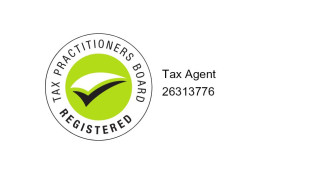
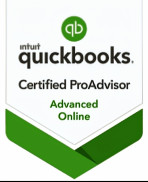
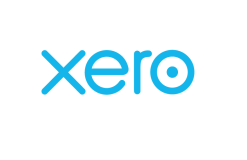
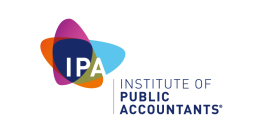
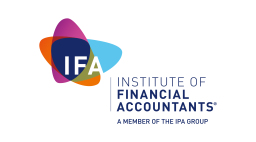
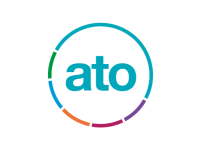
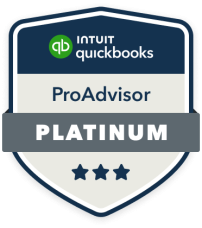
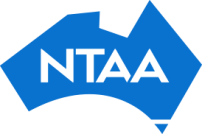
Client Testimonials
What our clients say about our services

















Thank You for Reading Our Reviews!
We appreciate you taking the time to read what our clients say about us. To read more reviews and verify their authenticity, please visit our Google Business Profile.
Visit Our Google Page~ iqCron Accounting acknowledges the Traditional Custodians of the land in which we live, work and play, the Nyoongar people, and we pay our respect to Elders past, present and emerging. ~
~ Liability limited by a scheme approved under Professional Standards Legislation ~

